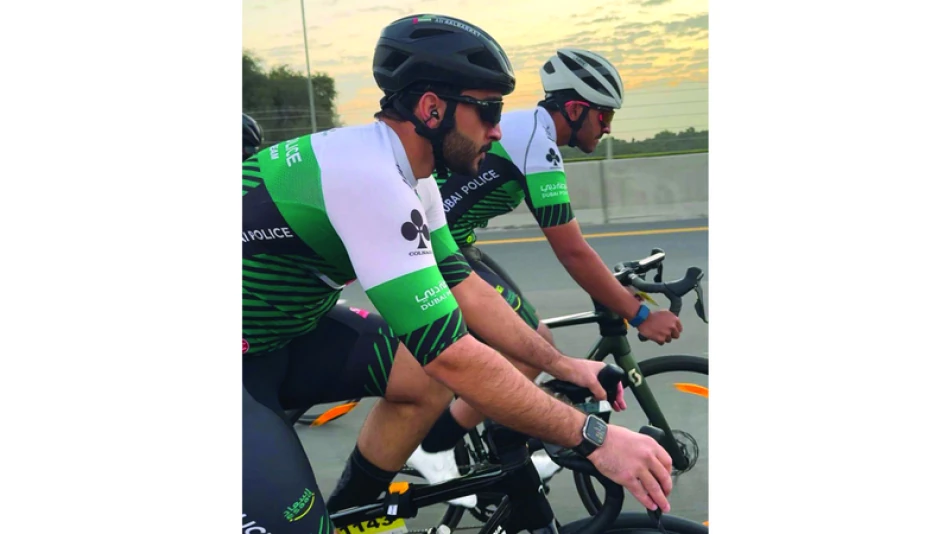
Al Barakat Family Excels in Equestrian, Golf, and Cycling: A Triple Sports Triumph
UAE's Triple-Sport Prodigy Eyes Olympic Glory in Equestrian, Golf, and Cycling
While most elite athletes dedicate their careers to mastering a single discipline, 22-year-old Emirati talent Ali Abdullah Al Barakat is defying convention by pursuing world-class excellence across three demanding sports simultaneously. His ambitious quest to represent the UAE at the 2028 Summer Olympics reflects a growing trend among Gulf nations to diversify their sporting portfolios and maximize medal opportunities on the global stage.
The Strategic Logic Behind Multi-Sport Mastery
Al Barakat's approach isn't born from indecision—it's calculated strategy. As a member of Sheikha Shama bint Hamdan bin Rashid Al Maktoum's show jumping and dressage team, he has discovered how different sports create synergistic benefits. "Equestrian taught me focus and control, golf gave me patience and precision, while cycling built my endurance and peak physical fitness," Al Barakat explains.
This cross-training philosophy mirrors successful multi-sport athletes like Australia's Jessica Fox, who dominated both canoe slalom disciplines at recent Olympics, or Norway's winter sports athletes who often excel across skiing disciplines. The UAE's investment in this approach signals confidence in developing versatile competitors who can maximize medal opportunities.
Balancing Academic Excellence with Athletic Ambition
Unlike many professional athletes who sacrifice education for sport, Al Barakat is completing his final year studying app development while maintaining competitive training schedules. This dual focus reflects the UAE's emphasis on creating well-rounded nationals who can contribute beyond athletics—a model increasingly adopted by Gulf states seeking to develop human capital alongside sporting success.
Early Results Validate the Strategy
Al Barakat's competitive record demonstrates genuine potential rather than mere ambition. In equestrian sports, he has secured sixth place in the UAE Championships, second place in the Sharjah Championship, and second in the Emirates Equestrian Club Championship. His cycling portfolio includes participation in prestigious events like Tour de France Dubai and the Dubai Police Cycling Championship.
The UAE's Sporting Infrastructure Advantage
Al Barakat's multi-sport pursuit is enabled by the UAE's world-class sporting infrastructure, particularly in golf where he trains using facilities that rival those in traditional golfing nations. His admiration for American golf star Scottie Scheffler reflects the global standards he's measuring himself against—a mindset that positions him competitively on the international stage.
This infrastructure investment distinguishes the UAE from many developing sporting nations. While countries like Qatar and Saudi Arabia focus heavily on football, the UAE has diversified across premium sports that offer multiple Olympic medal opportunities and align with its luxury tourism brand.
Olympic Pathway and International Implications
Al Barakat's 2028 Olympic target is ambitious but achievable. With six years to develop, he benefits from the UAE's systematic approach to athlete development and the country's willingness to support multi-sport talents. His official registration with the UAE Equestrian Federation provides a clear pathway, while his progression toward joining the cycling and golf federations suggests institutional support for his unconventional approach.
Regional Sporting Competition Intensifies
Al Barakat's emergence coincides with intensifying sporting rivalry across the Gulf. As neighboring countries pour resources into athletic excellence—Saudi Arabia's massive sports investments, Qatar's post-World Cup sporting legacy, and Bahrain's endurance sports success—the UAE needs versatile athletes who can compete across multiple disciplines to maintain regional sporting prestige.
His family's sporting connections, including his father Dr. Abdullah Al Barakat's role as vice president of the International Federation for Chess Problem Solving, demonstrate the institutional knowledge supporting his development. This combination of family expertise, state resources, and personal ambition creates optimal conditions for breakthrough international success.
The success or failure of Al Barakat's multi-sport strategy could influence how Gulf nations approach athlete development, potentially shifting focus from traditional single-sport specialization toward versatile competitors capable of maximizing medal opportunities across disciplines.
Most Viewed News

 Sara Khaled
Sara Khaled






